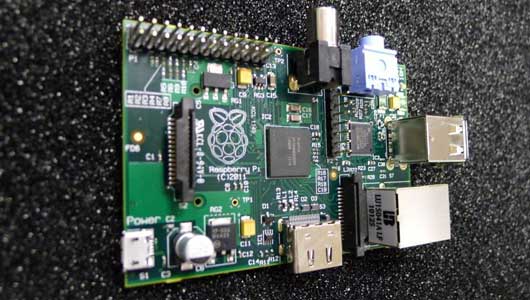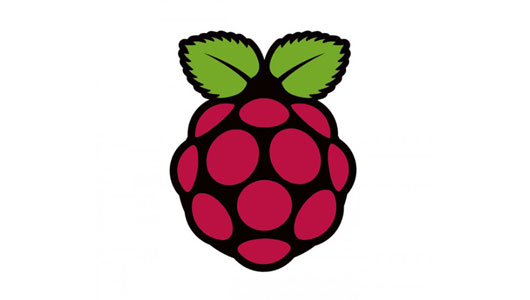For those not in the know, the Raspberry Pi is a little computer with a lot of bang for it’s buck. Which is good, because with the expensive model coming in at just $35, it is not a lot of bucks spent! It is such a powerful and clever little machine that it may be about to change the face of programming, especially as to how it is taught in schools, forever. It is aiming to do a similar job that the BBC Micro did many years ago and I was wondering if it will have a similar effect on the game designers of tomorrow.
I caught up with Eben Upton, Executive Director of the Raspberry Pi Foundation, to discuss the Raspberry Pi and what it could mean to games and gamers.

Eben Upton, Executive Director or Pi guy.
Eben: We wanted to produce a cheap computer for children, aiming to recreate the bedroom coding environment that I had when I was a child.
Eben: Use mobile phone parts, and sweat over every component on the board, and every connector choice.
Eben: You can use it as a general-purpose productivity machine, as a media player or (in due course) as a games machine.
Eben: I’d say it’s somewhere between a PS2 and a PS3 in terms of graphics performance.
Eben: That’s probably a fair comparison.
Eben: Most titles should map across pretty well. We’d love to see FPS, driving games, maybe even the occasional RTS.
Eben: I’d have liked to have a camera as a standard feature. A lot of people have asked for a second Ethernet connection to allow the device to function as a bridge.
Eben: Mostly labour cost, but also the cost of components, which would have to be shipped from the far east.

The Raspberry Pi in all its naked glory!
Eben: Yes. It’s obviously much easier to do this when you’re one of the guys on the chip design team.
Eben: The fact that it comes bundled with programming tools, and that it’s cheap enough you can afford to risk breaking it – always important, particularly in hardware hacking.
Eben: Yes. The kids we talked to for the BBC piece last week really enjoyed writing and playing even simple games on the device.
Eben: We’ve not had any volume educational orders yet, but we’ve not really pursued that angle yet, preferring instead to reach out to individuals.
Eben: We didn’t quite anticipate the scale of the demand. By partnering with RS Components and Premier Farnell, we gain the ability to scale well beyond what a little charitable foundation could accomplish.
Eben: Focus more on the educational mission. In a year or so start looking at the possibility of producing a next-gen platform.
Eben: Thank you!
——————–
Raspberry Pi’s can be purchase via: RS Components or Premier Farnell
Further information can be found on the Official Site


jvmaxwell
Very cool interview. It’s interesting to think of the Raspberry Pi being the next gen micro computer that teaches bedroom coders who make that next generation of great games.
Alexisgod666
I put in my email of interest to rs over a week ago now. Cant wait to get my hands on one of these.
TheRavingRaccoon
Can’t wait to get me some raspberry pi!
DatRandomDood
I ve ordered mine! ill just wait 2 days then we’l see what we can do with this computer!
I didnt know about the ps2/ps3 graphics performance in this machine,it got me even more exited!